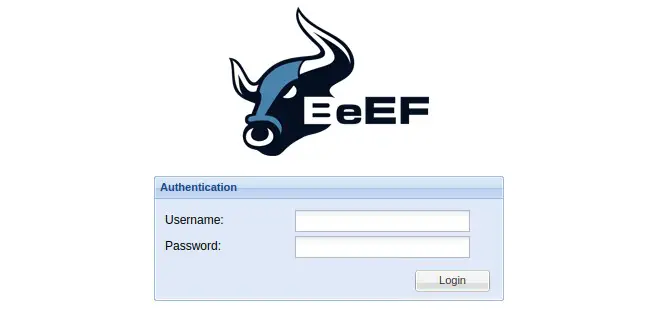BeEF: An Essential Kali Linux Tool for Penetration Testing
 prakash
prakash
BeEF is short for The Browser Exploitation Framework. It is a penetration testing tool that focuses on the web browser.
Amid growing concerns about web-borne attacks against clients, including mobile clients. BeEF allows the professional penetration tester to assess the actual security posture of a target environment by using client-side attack vectors.
Unlike other security frameworks, BeEF looks past the hardened network perimeter and client system, and examines exploitability within the context of the one open door: the web browser.
BeEF will hook one or more web browsers and use them as beachheads for launching directed command modules and further attacks against the system from within the browser context.
Uses of Beef:
Web Application Security Assessment:
It is quite useful for performing web application security evaluations. It aids in the detection of flaws and vulnerabilities in web applications by exploiting cross-site scripting (XSS), session hijacking, cookie stealing, and other browser-based flaws.
Exploitation on the client side:
It makes it easier to run client-side exploits against users who visit malicious websites or click on harmful links. However, it allows security professionals to analyse user behaviour and exploit browser vulnerabilities by employing numerous approaches such as social engineering, drive-by downloads, and malicious advertisements.
Centre of Command and Control:
It functions as a centralised command and control centre, granting security professionals remote access and control over infected browsers. This control allows you to execute a variety of operations, such as keylogging, network scans, screenshot capture, and launching additional attacks on the target system.
How to Use BeEF:
Follow these steps to successfully use beef:
Install Kali Linux: To begin, install Kali Linux on a dedicated system or in a virtual environment.
To install Beef, open the Kali Linux terminal and type “apt-get install beef-xss.” This will install Beef as well as any dependencies.
Configure Beef: Modify the configuration files to meet your testing needs. Change network interfaces, authentication methods, and logging options.
Begin with beef:
To start the Beef service, type “service beef start” into the terminal.
To access Beef’s online interface, open a web browser and navigate to “http://localhost:3000/ui/panel“.
Start Exploitation:
Use the Beef interface’s available modules and methodologies to conduct attacks, exploit vulnerabilities, and analyse the security of web applications.
GitHub Link: https://github.com/beefproject/beef
Subscribe to my newsletter
Read articles from prakash directly inside your inbox. Subscribe to the newsletter, and don't miss out.
Written by
